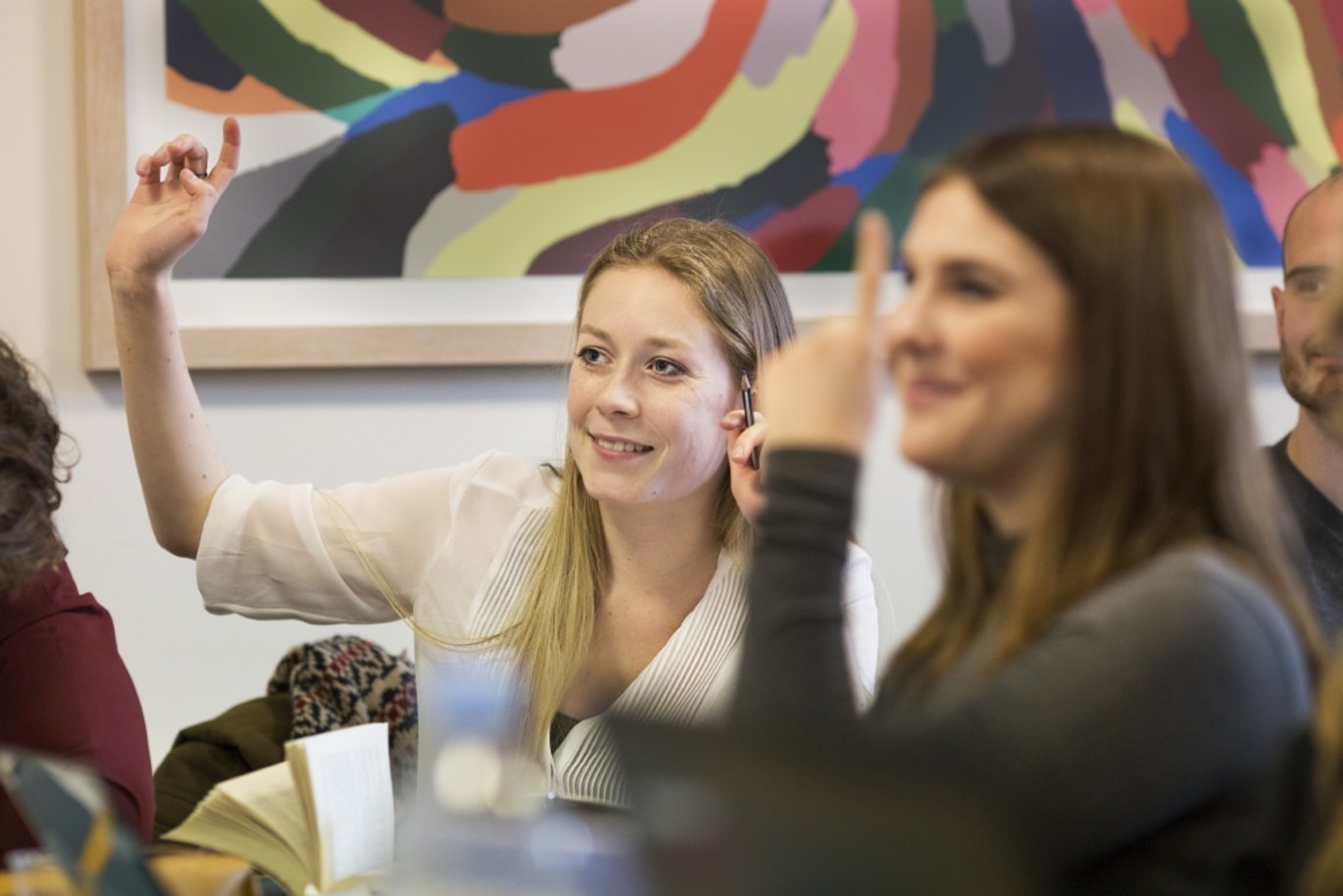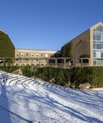New project to focus on labour-market relevance in the teaching
Many lecturers experience that students have career-related questions and questions regarding the relevance of their degree programme. A new didactic project focuses on different ways of incorporating the labour-market perspective into the teaching.

More students choose to do an internship or collaborate with companies in connection with projects, and they generally have an increased focus on how their academic competences can be applied in a future job. The increasing career focus has come to play a greater role in the classroom. Therefore, this autumn in collaboration with teaching staff, Arts Karriere and CUDiM have prepared new didactic formats to help address the career and relevance perspective in the teaching.
A new generation of students
“We see a generation of students who are goal-oriented in relation to their career. They want to make the right choices, which means that they often also take labour-market relevance into consideration in the teaching. Therefore, there’s a need to develop the career dialogue at degree-programme level. When we help lecturers address the issue, we also help them close the discussion so that they can concentrate on their academic competences,” explains Ulla Hjorth Andersen, career consultant from Arts Karriere.
That is something Sven Halse, head of department, can recognize.
“Students’ focus on labour-market relevance starts at a much earlier stage today. It’s a good idea to fully integrate career relevance into the courses, because I believe that if we give the teaching a career perspective from the start, it may increase the students’ satisfaction with their studies and reduce drop-out rates.”
Students’ focus on labour-market relevance starts at a much earlier stage today. It’s a good idea to fully integrate career relevance into the courses, because I believe that if we give the teaching a career perspective from the start, it may increase the students’ satisfaction with their studies and reduce drop-out rates.
External relevance and contact with companies
Sven Halse was one of the ten lecturers who joined the project this autumn. Together with Arts Karriere and CUDiM, they have prepared some customised formats for teaching purposes. Focus has been on two dimensions in the project: the internal relevance in relation to how the individual courses correlate with the rest of the degree programme and the external relevance in relation to the labour market.
“Several lecturers have expressed that they would like a format designed for internships. How are students best prepared before, during and after an internship? What do we need to focus on in the teaching when the students return after an internship and realise that they are able to apply their academic competences in practice? We have also given presentations on how to establish contact with a company, and how to set up a framework for the collaboration,” explains Ulla Hjorth Andersen.
Internal relevance of philosophy of science
Sven Halse concentrated on internal relevance in relation to a course such as philosophy of science:
“My ambition has been to intertwine the highly interdisciplinary basic course on the one hand, and a number of courses to which links must be established on the other.”
What were the results of the project?
“We’ve developed an entirely new concept for philosophy of science for humanities language programmes. Previously, philosophy of science consisted of ten three-hour lectures which concluded with an assignment, but now we’ve ensured closer ties to the programme from the very start. We’ve cut down on the number of lectures and added four exercise modules that are linked to the language programmes’ four academic focus areas: history, language, comparative literature and cultural history. The exercise module concludes with collective feedback, where Arts Karriere has helped prepare a relevance form which the students must complete as feedback on their own assignment.
What is the students’ reaction?
“We’ve just had an interim evaluation, and the students are extremely satisfied with the structure. Many of them emphasise this correlation with the programme as something positive, as well as the way in which they themselves will be working in the course.”
The project will run until the end of 2017. The majority of the formats will be developed and tested in autumn 2017, and the rest in spring 2018. Participation in the project is an offer to all degree programmes at Arts.
About the Didactic Development project:
- The Didactic Development project emerges from Aarhus University’s overall strategic efforts Career Ready (Karriereklar).
- The focus of the project is to develop and implement new didactic formats and courses that promote the understanding of the relevance and career perspective on the degree programmes at Arts. The formats are intended to support the students’ understanding of the career and relevance perspective of their degree programme and is to be developed at degree-programme level with close ties to the core academic content of the course in question.
- The following programmes have currently joined the project: English, Religious Roots of Europe, Diaconia, Rhetoric, Comparative Literature, Scandinavian Studies, Art History, German, History and Digital Design.
- If you want to know more about the project or collaboration opportunities, please contact project manager Ulla Hjorth Andersen, ulha@au.dk

